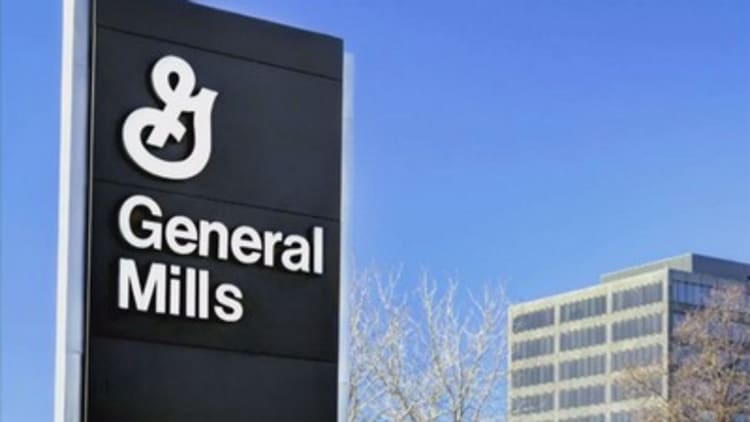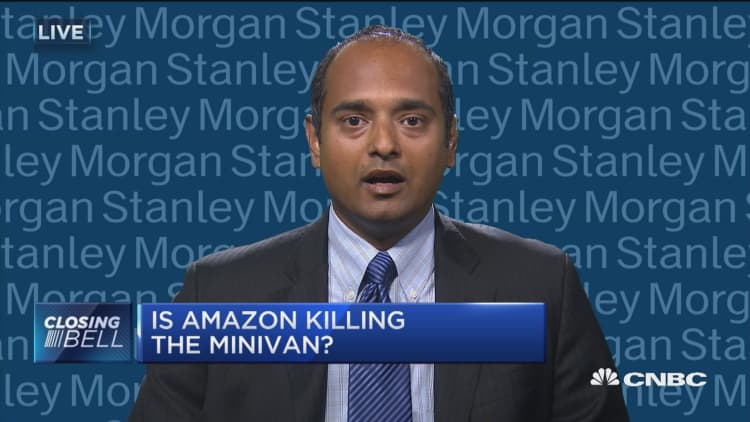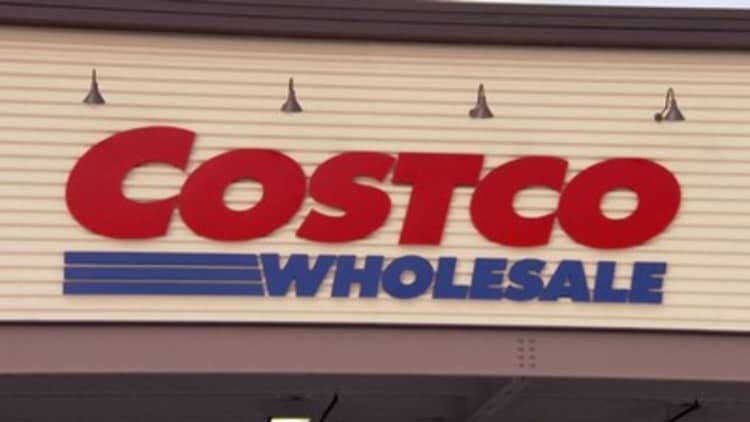
Jeff Bezos just drove a tank into the middle of the food fight going on between Wal-Mart and the packaged goods industry.
Amazon's $13.7 billion deal to purchase Whole Foods is expected to be disruptive for grocers and other retailers, but it couldn't come at a worse time for big brand food companies, already hurt by the heavy hand of Wal-Mart's discount pricing and the expansion of online shopping.
Now with Amazon jumping into the grocery business with a more than 400-location retailer, the price slashing — and competition from private labels — can only intensify. As consumers also look for fresher foods and more organic and natural offerings, shelf space in the supermarket center aisles, long dominated by big brands like Kellogg, Kraft Heinz and Campbell Soup — is also simply shrinking.
The Amazon merger is just another blow that reinforces these trends.
"I would say it's the smaller brands that are going to be most affected. Conagra and the midtier companies are probably going to be the most hurt. There's probably a lot of independent brands that are owned privately around the country that have the least pricing power and will be hit hard by this," said Bernstein analyst Alexia Howard. It's not good news "for the cereal companies, but it's generally not good news for packaged companies."
Howard covers companies, like General Mills, Kraft Heinz, McCormick, Dean Foods, Mondelez, Hershey's and Kellogg, and she turned more negative on the sector in March.
She said Wal-Mart is not only fighting it out with Amazon online, but it is facing new competition from German retailers Lidl and Aldi. Lidl is a deep discounter and just opened its first stores in the U.S., while Aldi is expanding its presence. Analysts say Wal-Mart is expected to expand in private label and fresh food offerings.

"It's hard to see how quickly this [Amazon deal] will play out across the space," said Howard. She said the initial focus would likely be on Whole Foods cost structure. But the merger could be transformative on other fronts as Amazon makes Whole Foods a bigger part of its online presence and brings more competitive pricing to Whole Foods stores.
"The bigger deal for [food] companies is the 365 brand and over time, they could ramp that up to be a more important feature of their online offerings. That's a pretty big deal," said Howard. Whole Foods' private-label 365 brand is well-received by consumers, but it doesn't currently have that much penetration.
The other trend that has been hitting the makers of the traditional food products that once were the main staples in American pantries is the health and wellness focus of consumers. Consumers are looking for healthier foods with "cleaner" lists of ingredients. With Whole Foods, Amazon CEO Bezos is embracing the grocery chain most focused on organics and natural foods, and he would be riding another trend that's been upending the packaged foods sector.
"That's allowing new challengers or small brands gaining market share, and you're seeing a fragmentation of the industry. Consumers, particularly mothers of small children, have started to talk about what's in our food," said Howard, noting there are huge online dialogues about it. "It's created a distrust of the legacy products. That's what's reduced barriers to entry and allow a lot of new brands to come up, and that's another big challenge."
The shakeout will likely continue to lead to mergers, and Howard likes Kraft Heinz and Mondelez best. "I like Kraft Heinz because of dealmaking and Mondelez because they're 75 percent out of the U.S. and have good cost-cutting going on," she said.
Even before the Whole Foods deal was announced, Piper Jaffray analyst Michael Lavery initiated coverage of General Mills, the maker of Cheerios, with an underweight rating.
"Shifts in the retail environment, particularly in North America, may pose risks broadly for center-store processed food manufacturers, including General Mills. Consumers continue to drive away from processed foods," Lavery wrote. "We expect continued downward pressure on pricing from intense retail competition, driven by retailers like Walmart, Aldi and Lidl and online retailers, too."
In the case of General Mills, "we also expect ongoing volume pressure, driven by continued shifts in consumer preferences and potentially exacerbated by shrinking shelf space and growing competition from prepared foods and meal kit delivery services," wrote Lavery.
Watch: The aftermath of Amazon-Whole Foods



